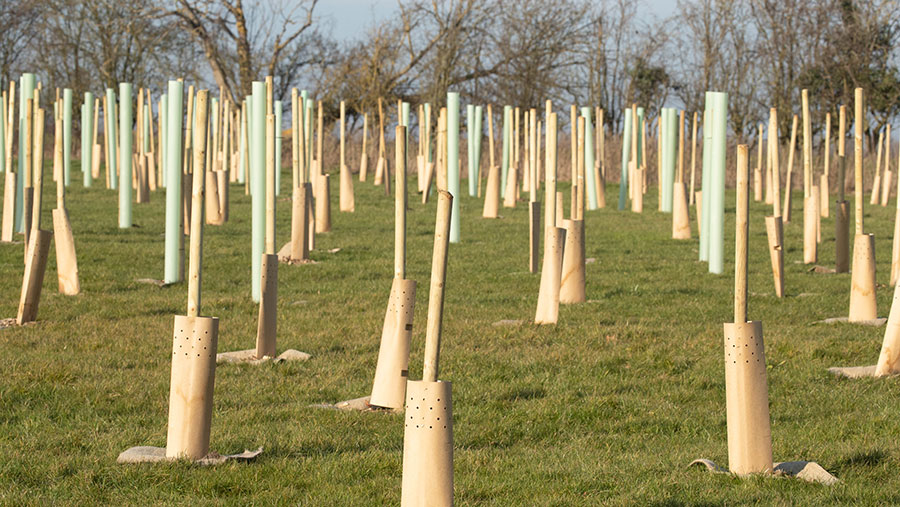Defra farming expert gives update on carbon farming plans
 © Tim Scrivener
© Tim Scrivener A Defra farming expert has given an update on how his government department is evaluating the potential for carbon trading in agriculture.
Jonathan Baker, a senior civil servant working at Defra on its future farming policy, was drafted in at short notice to appear on a panel at Natural England’s Food and Nature conference in Birmingham on Monday 28 November.
Mr Baker was asked how Defra thinks agri-environment schemes will operate alongside farmers who may wish to sell their carbon credits to private companies.
See also: Trading carbon and natural capital – legal advice for farmers
He said Defra recognised that it needed to lay down some rules about how public funding could work alongside private markets for carbon credits.
Teams were looking at setting out a standard or framework, which could determine whether “stacking” is appropriate or not.
The UK government plans to develop private markets to support investment in natural capital projects and it aims to leverage about £500m of private investment each year by 2027.
Mr Baker said the government aims to increase the level of support from private companies for nature-based approaches to about £1bn/year by 2030.
This would be in addition to the £2.4bn of annual support it provides for agriculture in England.
Defra has confirmed that farmers in England who apply for the Sustainable Farming Incentive (SFI) in 2022 will also be able to enter the same area of land into a private sector agreement such as carbon trading or payments for natural flood management.
The department has also just launched 22 pilot projects in the first phase of the Landscape Recovery Fund, which Mr Baker believes may offer a greater case for private sector investment, such as species recovery and improved water, due to the scale and larger, long-term opportunities.
“We all hope the private sector will step in and make this really significant investment,” said Mr Baker. “We are at a point in time where we are going to find out if that’s the case and what we need to do to help make it better.”
The pilot projects will be followed by a phased rollout from 2024.
Reaction
Natural capital and the potential for private sector investment could provide some “real opportunities” for the farming sector, said Roger Draycott, from the Game and Wildlife Conservation Trust.
He added that answers were needed from government on whether farmers could “stack” private sector investment on top of support for public interventions, and what this would mean for the tenanted farming sector.
But Mike Wilkins, a Young Farmer ambassador for the NFU, said the farming industry needed to focus on achieving net zero first and he was concerned it would sell out to the private sector.
“I don’t want to see us having these benefits and then selling them directly to Shell to offset their digging oil out of the ground, or to BP to offset them pumping fumes through aircraft,” he added.
